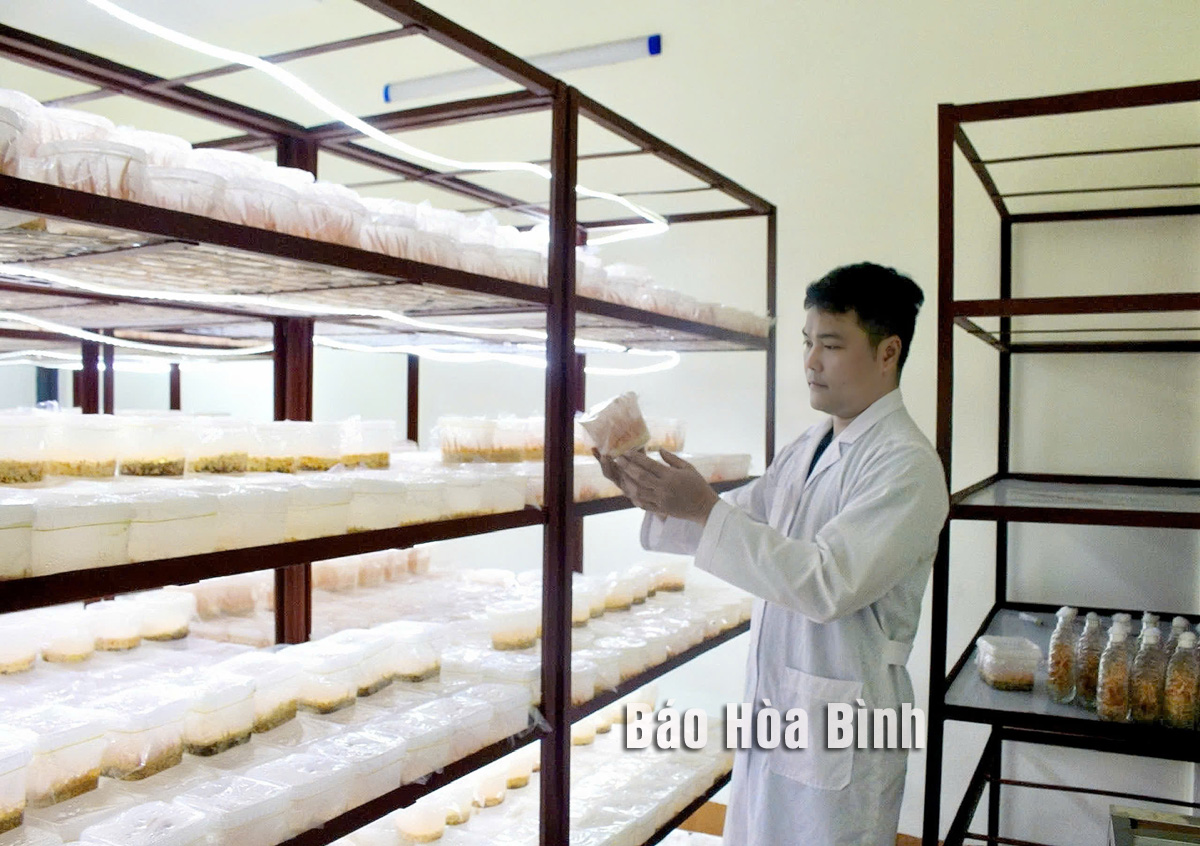
The Youth Union of Hoa Binh city has launched a series of initiatives to foster entrepreneurship, providing members with opportunities to showcase their potential and contribute to local development.
Ngo Kim Quyen, residing in Dong Tien ward of Hoa Binh city, has launched a
model cultivating cordyceps mushrooms.
With over 6,200 members across 50 local
branches, the municipal Youth Union has been actively promoting digital skills
training and entrepreneurship support programmes since early 2024.
Last year, four start-up projects from the city
took part in the province’s 5thyouth innovation start-up competition,
with two projects – one focused on self-learning skills for students and adults
and another establishing a youth music hub – advancing to the second round.
To further equip young people with essential
skills, the union has partnered with businesses and organisations to provide
training on digital transformation, e-commerce, and financial management. Job
fairs have also been held to connect youth with potential employers, paving the
way for stable career development.
Beyond idea incubation, the city’s start-up
movement has encouraged local young people to invest in local economic growth.
Many have ventured into high-tech agriculture, eco-tourism, and traditional
handicrafts, creating jobs and boosting income for their communities.
Nguyen The Nham, Deputy Secretary of the
municipal Youth Union, said despite these positive outcomes, challenges remain,
including limited practical experience, difficulties in accessing funding, and
gaps in management skills. He shared the organisation’s plan to expand support
programmes, develop a sustainable start-up ecosystem, and strengthen
partnerships with specialised agencies to enhance training and consultancy for
young entrepreneurs.
In Lac Thuy district, communes have been succeeded in promoting their One Commune-One Product (OCOP) products while others are still struggling to position their typical farming products in market. Some communes in the district still fail to have their products met OCOP programme’s requirements, while others have seen their certifications expired.
The inspectorate agency of Hoa Binh province has issued Official Dispatch No. 1090/TTr-PCTN to provincial departments, agencies, localities, business associations, enterprises, and investors regarding measures to improve informal component indexes of the Provincial Competitiveness Index (PCI).
Hoa Binh is taking concrete steps to improve its investment environment, with a strong focus on supporting businesses, settling obstacles for strategic investors, and creating opportunities for robust development in the coming years.
Under the blazing early summer sun, the construction site of Nhuan Trach Industrial Park (IP) in Luong Son district is abuzz with activities from dawn to dusk, a testament to the determination of the investor to meet their construction targets on schedule.



